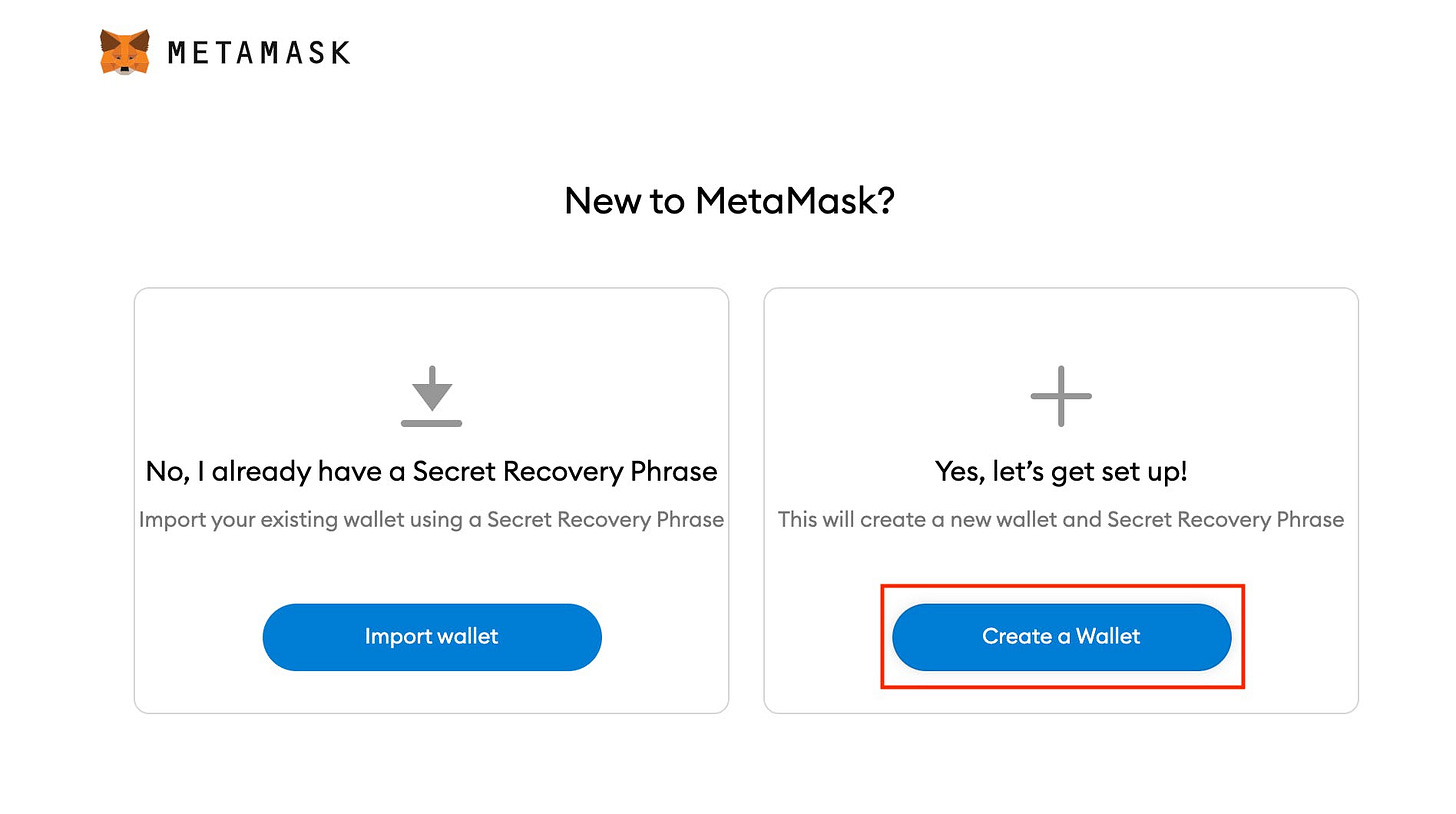The Day You Bought Your First Bitcoin
💸 "How do I get started?", "How do I send cryptocurrencies", and more.
Crypto Sundays is a free Sunday newsletter. If you love it, consider sharing it or leaving a comment below. Thanks for reading 🙂
Welcome to Part 4 of "Fundamentals in 5 Parts".
As I wrap up this series, I’ll move from theory to application.
🔑 Keys: Your portal into crypto
If you're new to crypto, I'm going to assume that you want to own some currency and play around with it.
The only concept you need to know before we talk about owning currencies is public and private keys.
Each crypto account has its own identifier, known as a public key.
A public key is a long, random sequence of letters and numbers, like
1DvMd11cQrkYcvPEdQRNSWrVx6di4sGm2C, that uniquely identifies an account.
Think of it as the 'Send From' address for a transaction.
Each account also has a private key to prevent others from spending your currencies.
A private key is also a long, random character sequence, but it is only known to the account owner.
Think of it as a password for the account.
🏧 Getting a Crypto Wallet
To send and receive cryptocurrencies, you’re going to need an account.
A crypto wallet makes this easy for you. It creates an account, generates public and private keys, and stores them securely.
Wallets come in two forms: hardware or software (i.e. mobile/web applications). Here are some top wallets services you can choose from in each category:
Hardware
Ledger (https://shop.ledger.com/)
Trezor (https://shop.trezor.io/)
Software
MetaMask (https://metamask.io/download.html)
Coinbase Wallet (https://www.coinbase.com/wallet)
Exodus (https://www.exodus.com/download/)
Of course, you’re encouraged to do your own research before downloading or buying a wallet.
To show how easy it is to get started, I've appended a walk-through of opening an account with MetaMask.1
With a wallet, you’ll have an account address as a public key through which you can send or receive a currency.
To receive a currency, share your address with the sender – as a QR code or the character sequence itself. To send it, ask for theirs and specify the amount. That’s the only requirement for dealing with cryptocurrencies.
Your wallet also shows you your balance. Here's a GIF from Coinbase Wallet showing balances and steps to receive crypto.2
💱 Exchanging Currencies
Now, let’s talk about how you can obtain cryptocurrencies.
The options are the same as landing in a foreign country without their local currency: you can earn it,3 receive it from someone, or exchange it with an existing currency.
The last option is usually the most accessible.
Crypto exchanges make this easy: you can convert between cryptocurrencies and fiat money for a tiny fee. There are hundreds of exchanges to choose from. Here are three top ones:
Binance (https://www.binance.com)
Coinbase (https://www.coinbase.com)
Gemini (https://www.gemini.com)
The steps to exchange currencies are simple. Open an account on their website or mobile app, complete any Know Your Customer (KYC) requirements, and swap currencies in a few minutes.
Most crypto exchanges also offer in-built wallets, so you can send and receive currencies without downloading or buying anything else.
Knowing all this, what can you do now?
You can open an account on a crypto exchange to swap fiat and cryptocurrencies
You can use crypto wallets, including in-built wallets on exchanges, to safely store cryptocurrencies
You can send or receive cryptocurrencies to or from any address
To master these basics, make a small purchase or set up multiple wallets and send money amongst themselves.
You’re now empowered to use any cryptocurrency!
Bonus: Opening a MetaMask account on Google Chrome
Step 1: Head over to https://metamask.io/download.html and click on 'Install MetaMask for Chrome'.
Step 2: Open the Chrome Extension and follow the onboarding instructions. Read and follow each instruction carefully! You'll have to set a password and save a secret phrase somewhere.
Step 3: Voila! You now have an account to send and receive Ether (Ethereum's cryptocurrency). The highlighted box below shows your public key, the address on which you can send or receive currencies.
You can earn Bitcoin by becoming a miner (and Ether in a similar way), but it is mostly unprofitable unless you’ve invested in special computing hardware.







